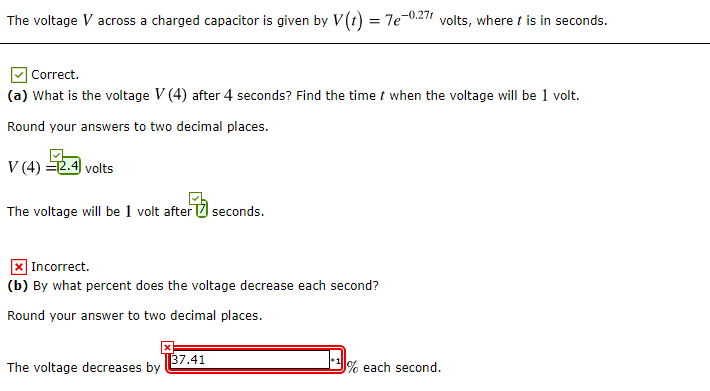By what percent does the voltage decrease each second? I'm so close to the answer help!?

For A. I got 7e^(-0.27*4) =2.4
For A. I got
1 Answer
Explanation:
Given:
Starting at a time any time
Let's take a moment to recall the definition of
This can be written as:
In our case,
Substitute in the equivalents for the functions:
Distribute the
We know that addition of a negative in the exponent is the same as multiplication by base raised to that negative exponent:
Cancel the common factors:
With the cancelled factors removed:
Rounded to two decimal places:
